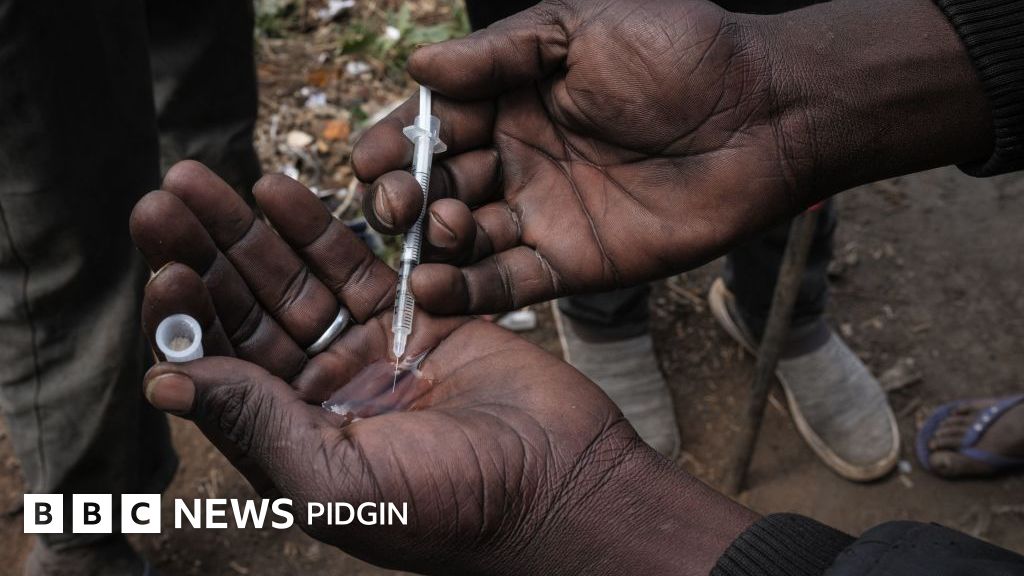Marriage and visa clearance take a bumpy ride in Nigeria
Nigeria SeizuresPosted by AI on 2025-07-16 14:42:11 | Last Updated by AI on 2025-08-11 04:59:38
Share: Facebook | Twitter | Whatsapp | Linkedin Visits: 5

Recent reports have shown that the National Drug Law Enforcement Agency (NDLEA) is requesting married women to provide a letter of approval from their husbands when applying for visa clearance. The requirement, which has faced public backlash, alleges that the step was taken to curb drug trafficking.
According to Ndlea spokesperson, Ofoyeju Taofiq, the agency is only trying to uphold due process in the country's efforts to eradicate drug abuse. Each applicant, regardless of gender, is subjected to thorough scrutiny. He argued that if every citizen could be subjected to comprehensive background checks, then there was no reason to single out married women.
Many women's rights advocates have loudly condemned the cumbersome measure, demanding an immediate reversal. The public is anxiously waiting to see how this plays out, knowing that the NDLEA has a history of clamping down on drug offenders, with arrests topping over a million in the last decade.
"We can not keep quiet while laws that undermine women are created," said Celina Agbor, a women's rights activist. "This is not the kind of change we as women in Nigeria should be expecting from our governments."
Only time will tell if the requirement will indeed be revoked or if other Nigerian authorities will jump on the bandwagon and start demanding spousal approval for other activities.
Conclusion:
This development is worth noting, as it raises questions about gender dynamics in Nigeria and the possible implications for married women's rights in the West African nation. The public's agitated response to the news underscores a potential shift in societal attitudes and a potential catalyst for future legal challenges.
Quote: "It's akin to going backward in time and space. We deserve better," proclaimed Agbor.
The NDLEA's stance, coupled with the increasing public backlash, promises to make this an interesting legal and socio-cultural dilemma in the days to come.
Search
Categories
- Sports
- Business
- History
- Politics
- International
- Science & Technology
- Social Issues
- Disaster Management
- Current Affairs
- Education
- Startup Business
- Startup News
- Awards
- Community Services
- Fundraising Events
- Volunteer Services
- Health Initiatives
- Innovations and Initiatives
- In News
- dummybanners
- Awards
- Partners
- Products
- Press Releases
- News
- Fast Check
- South
- సినిమా
- Gallery
- Sunday Chronicle
- Hyderabad Chronicle
- లైఫ్ స్టైల్
- National
- క్రైం
- ట్రెండింగ్
- జాబ్స్
- అంతర్జాతీయo
- బిజినెస్
- రాజకీయం
- బిజినెస్
- సంపాదకీయం
- నవ్య
- చిత్ర జ్యోతి
- క్రీడలు
- జాతీయం
- తెలంగాణ
- తాజా వార్తలు
- మన పార్టీ
- మన నాయకత్వం
- మన విజయాలు
- డౌన్లోడ్స్
- మీడియా వనరులు
- కార్యకర్తలు
- North East Skill Center News
- Government Schemes
- Entrepreneurship Support
- Employment Opportunities
- Skill Training Programs
- Departments
- Investments
- Initiatives
- Resources
- Telangana IT Parks
- Events & Jobs
- Press Releases
- News
- Airport News
- Newtons Laws of Motion
- Karbonn in Business
- Investments in Karbonn
- Company quarterly sales
- Markets
- Auto News
- Industry
- Money
- Advertisements
- Stock target
- Company Updates
- Stock Market
- Company Sales
- Staffing and HR
- Constituency Assembly
- General News
- Srikalahasti Temple
- Bojjala Sudhir Reddy
- Technology & Innovation
- Sports
- Business
- Products
- Industries
- Services & Trainings
- Tools & Resources
- Technology Integration
- Drug Seizures & Arrests
- Telangana Narcotics
- Law & Enforcement
- Rehabilitation
- Nationwide Drug Policing
- Nigeria Seizures
- Global Operations
- Drug Awareness
- Drug Enforcement Tech
- NCB Drug Seizures
- Judicial Crackdown
- India's Surveillance Tools
- Cross-Border Links
- Women Safety
- Cyber Crimes
- Drug Abuse
- Traffic & Road Safety
- Community Connect
- Public Safety Alerts
- Citizen Assistance
- Nellore City News
- Politics & Administration
- Events & Festivals
- Agriculture & Rural
- Business & Economy
- Health & Wellness
Recent News
- Ex-RAW Officer Vikash Yadav's Sudden Arrest and Accusations
- Shillong Teer Results Today, August 11, 2025: Winning Numbers For All Teer Games
- Air India Executrix Delay Draws Flak From All Sides
- 'Mission Mausam': IMD Floats Global Tenders For 10 Weather-Monitoring Wind Profilers
- Noida Daycare Worker Arrested After She Assaults, Bites 15-Month-Old Child
- Congress Leader Anand Sharma Parts Ways With Foreign Affairs Post
- Air India Plane with Troubled MPs Diverted, and Airline Responds
- The Google Pixel 10 Series Readies For An Release, But Not Without A Few Twists